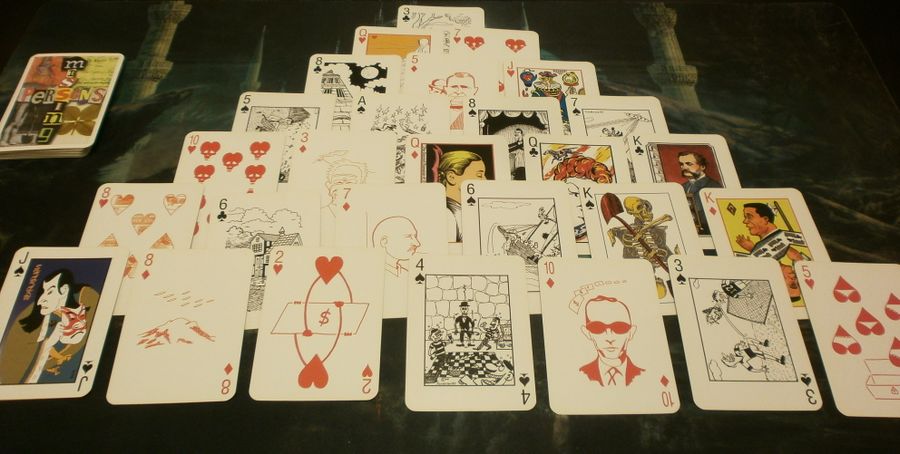Pyramid Board Game
Pyramid is a card game that has been around for quite some time, although its exact origins are a bit murky. The game revolves around set collection and strategic decision-making, making it a favorite among players who enjoy a challenge.
Game Components of Pyramid Board Game
How To Setup Pyramid Board Game
To set up the game, players start by drawing tiles from one of the three single tiles in front of four piles. Each player takes turns placing these tiles to form the base of their pyramid, aiming for a 4×5 or 5×4 base. The tiles must be placed immediately and touching existing tiles, with colors not being a factor but requiring at least half of the tiles to touch each other.
Gameplay Mechanics and Game Objective
Player Experience
Playing “Pyramido” is an engaging and strategic experience. The game requires players to think ahead, planning their tile placements carefully to maximize their scores across multiple layers. The use of single tiles adds a layer of flexibility and strategy, especially in the final rounds. The game’s structure, where the scoring area reduces but the scoring mechanics remain consistent, keeps players focused on connecting their tile groups efficiently.
Pros
Cons
Personal Thoughts on Pyramid Board Game
“Pyramido” is an excellent choice for anyone who enjoys tile-laying games and abstract strategy. It is particularly suited for players who appreciate games that require forward thinking and strategic planning. While it may not be the best fit for those seeking a highly lucky or quick game, it offers a rich and satisfying experience for those willing to invest time and thought into their gameplay. The game’s complexity and depth make it a great addition to any board game collection, especially for those who enjoy puzzles and strategic challenges.
We are supported by our audience. When you purchase through links on our site, we may earn an affiliate commission, at no extra cost for you. Learn more.

